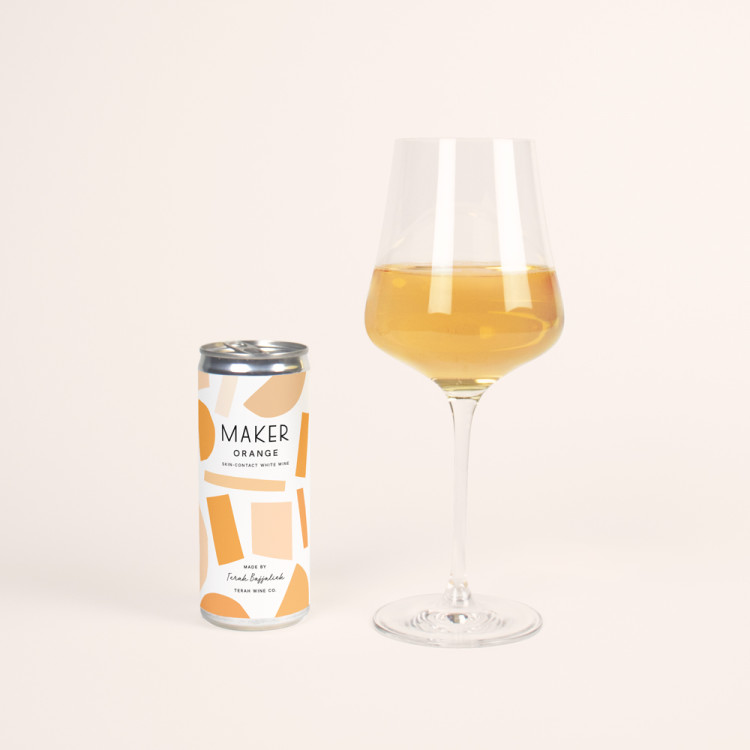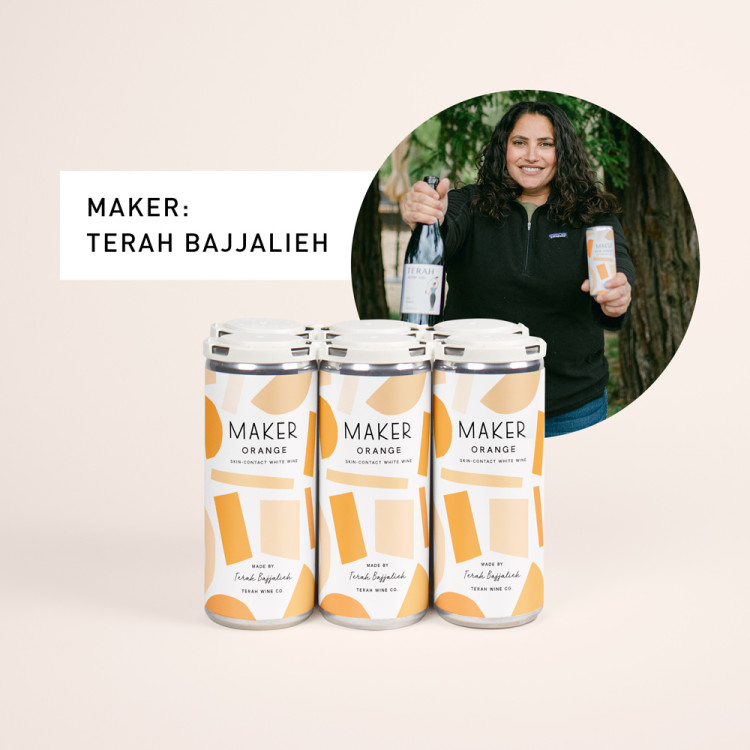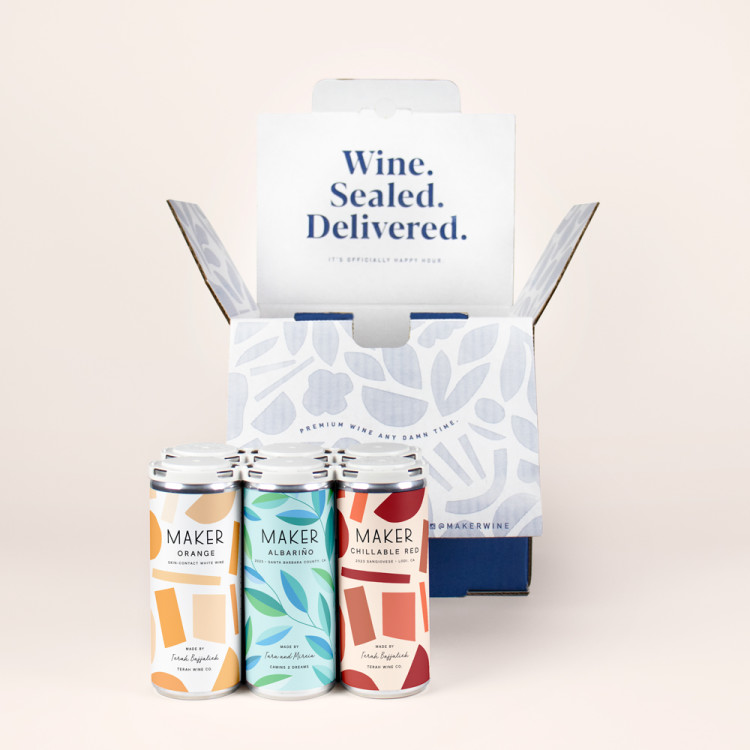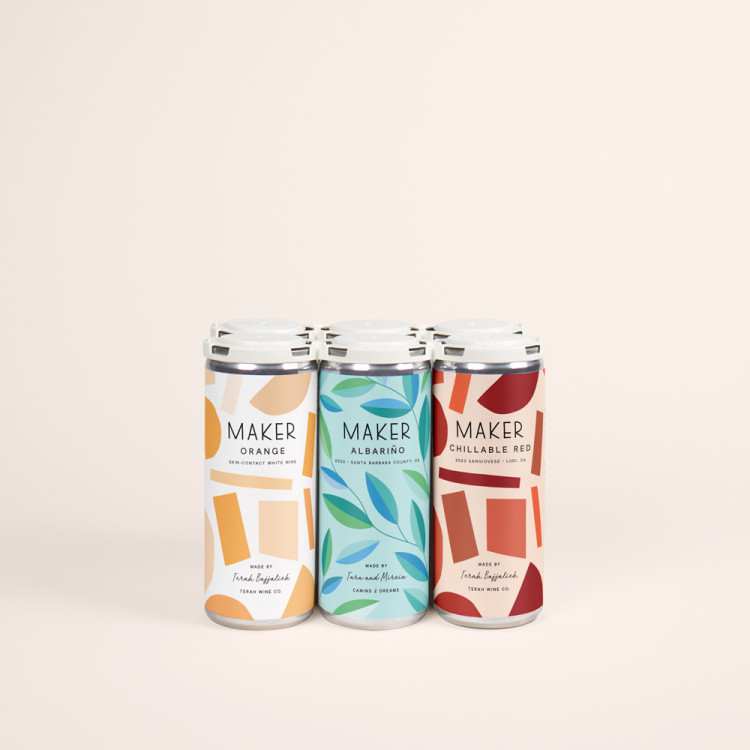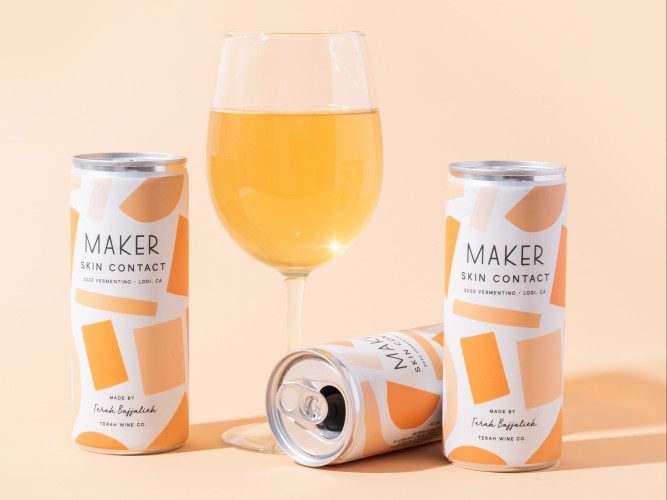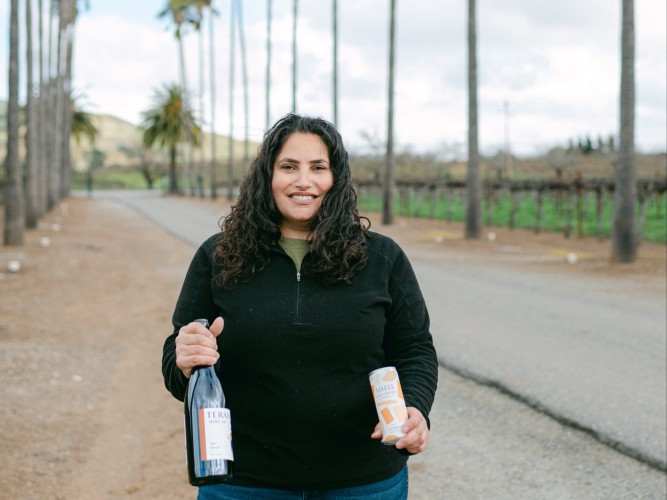Wine School
Wine 101: What is Orange Wine?
Everything you need to know about the world’s new favorite wine color, and where to find a fantastic natural orange wine. (Spoiler alert: We have one.)

By Maker Wine
April 09, 2024
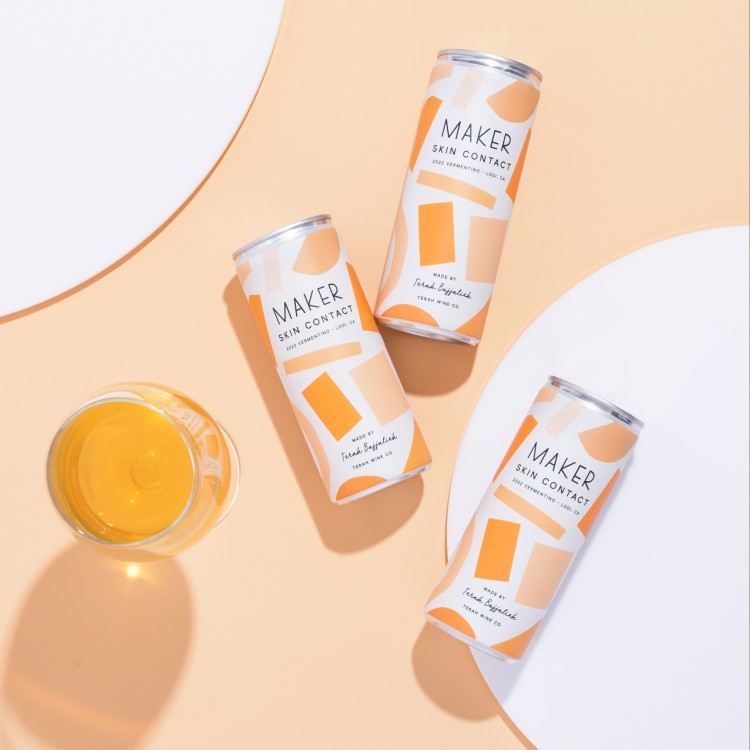
Orange is the new wine. This mesmerizing color has recently made quite a splash on the scene, but really what is orange wine? What does skin contact wine mean? What does orange wine taste like compared to red or white? And why should you give natural orange wine a shot... or a sip?
While orange wine may seem to be the new hot thing, it’s actually kind of ancient: It originated in Georgia (the country, not the state), where winemakers have been fermenting white grapes with their skins in clay vessels known as Qvevri for thousands of years. The technique spread to Italy in the 1990s and has since been on the rise, with winemakers worldwide experimenting with different grapes, techniques, and flavors.
If you’re not familiar with orange wine, it’s wine made from white grapes using the same fermentation processes that make red wine. Because of the fermentation style, orange wine is often more structured than white wine, and is known for its distinctive color, depth of flavor profile, and more intriguing nose.
Keep reading to get the low-down on precisely what is orange wine, what it tastes like, and where to find a divine natural orange wine. (Spoiler alert: We’ve got one.)
Shop our Orange Vermentino
Orange Wine (Skin-Contact Vermentino)
Terah Wine Co., Lodi, CA
Thyme, lemongrass, citrus, and Pacific Ocean minerality – a very refreshing orange wine.
The basics: What is orange wine or skin contact wine?
Orange wine is wine made from white grapes that have been fermented with their skins on. It’s also called skin contact wine, skin-fermented wine, or amber wine.
Like we mentioned earlier, this is also the same way that winemakers make red wine, so if anyone’s trying to mansplain it, just say that to shut them up.
The result is a more complex and aromatic wine, with extra tannins, texture, and weight. The fermentation process also influences the color of the wine, which can range from amber to a gorgeous terracotta hue.
Orange wine can also be made using traditionally natural winemaking methods and minimal intervention to create a natural orange wine, which is what we’ve got at Maker – but more on that later.
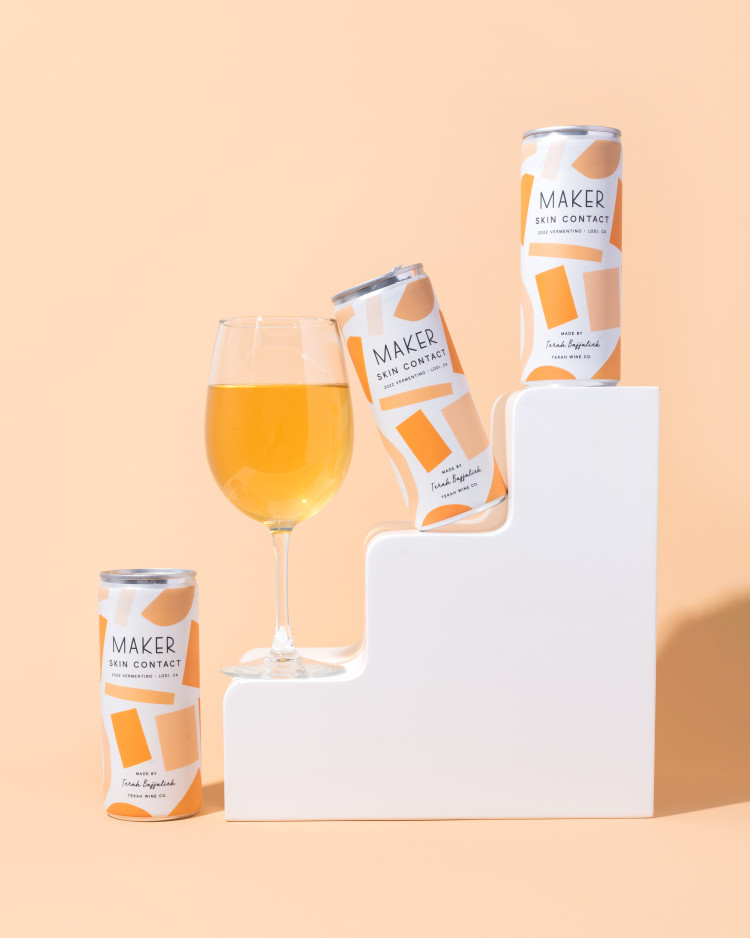
How is orange wine made?
Orange wine is made by using white grapes that undergo a process called skin contact fermentation, or skin contact maceration. The grapes are placed in open-top vessels, with stems as a whole cluster or destemmed, allowing oxygen to interact with the grapes as they sit in contact with their skins.
The skins contain tannins, which give the wine its structure, complexity, and distinct hue, hence the name "orange wine."
What does orange wine taste like?
Orange wine tastes, well, complex – its remarkable flavor profile sets it apart from all other types of wine. And the choice of grape variety used to make orange wine can vary depending on the winemaker's preferences, with fermentation time ranging from a few days to several months.
The extended time gives the wine a rich, layered taste, with notes of citrus, ripe fruits, nuts, herbs, and minerality. Orange wine can also be tannic and slightly bitter – some call it “funky”– which makes it a good pairing for hearty meals like stews and roasted meats.
So, where does the natural part come in?
Orange wine’s growing popularity is also closely tied to the rising prominence of the natural wine movement. More and more winemakers are interested in exploring unique and traditional winemaking techniques that require minimal intervention from grape to glass. And wine drinkers are looking for something to sip on that’s good on the palate, and on the planet.
While there’s no official definition for natural wine, there are a few key points to keep in mind: it’s produced using organic or biodynamic farming methods, with minimal use of sulfites and no additives or commercial yeast.
That means, for natural orange wine or natural skin contact wine, the white grapes used are grown without the use of pesticides and chemicals and follow natural winemaking processes. The result is a deeply layered wine that reflects the unique characteristics of the grapes and the environment in which they were grown.
What’s the story behind Maker’s natural orange wine?
We recently launched Terah Wine Co’s handmade, small-batch Orange Vermentino by founder Terah Bajjalieh, which is extra special because it’s also made using natural winemaking techniques, using biodynamically farmed grapes and a unique fermentation and pressing process that creates a refreshingly aromatic, food-friendly wine.
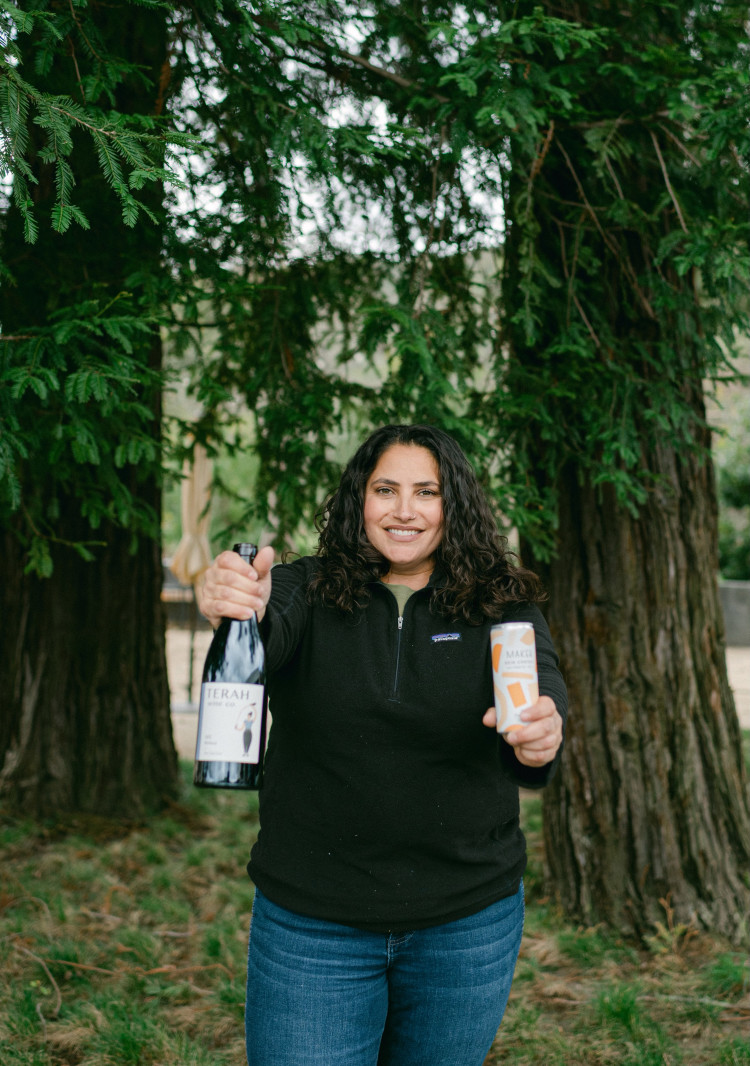
Terah holding a can of orange on canning day. Photo credit: Alison Rae Photography.
Terah’s 100% Vermentino grapes are fermented with skins on – and stems on – as a whole cluster. Terah then pressed and fermented a small portion as straight Vermentino, before blending a bit of that portion back into the orange wine.
Terah believes that the quality of grapes and the quality of farming have a tremendous impact on the final product, which is why she chooses to work with independent growers and organic, biodynamic vineyards. The result is expressive, structured, balanced wine – and one we’re proud to can.
What does maker’s orange wine taste like?
100% Vermentino, and oh-so-very orange.
Orange Vermentino is a food lover’s best friend. With notes of clementine, thyme, and Pacific Ocean minerality, this terracotta-toned beauty pairs perfectly with Thai dishes, fall salads, Vietnamese noodles, and anything minty or cilantro-y. Terah’s MO is to make wine that pairs well with food, and let’s just say, she delivered.
Orange Wine is quickly becoming a fast favorite – get exclusive access and shop the rest of our natural wine line by joining the Can Club today.
Shop Maker's natural wines
Natural Wine Pack
Natural Red, Orange, and White Wines
Three #nofilter kind of wines from LGBTQ+ female winemakers – try Albariño, Orange Wine, and Chillable Red.
